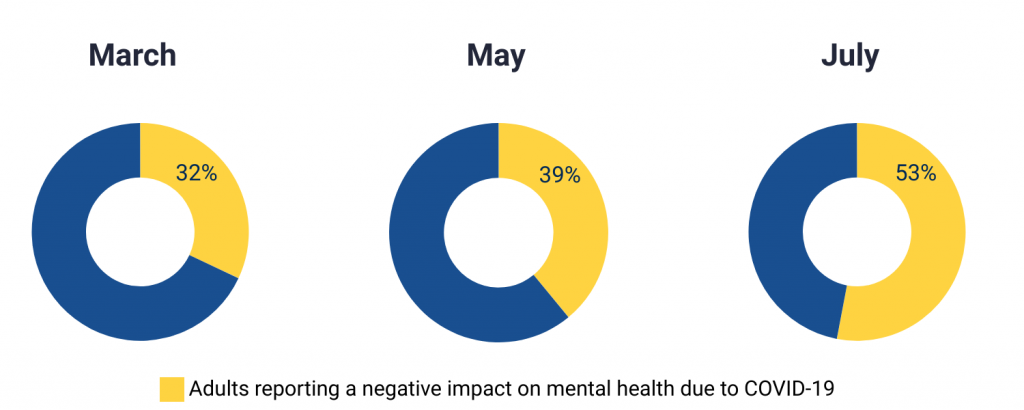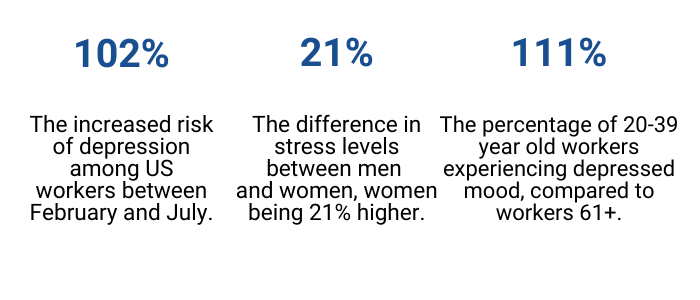We’ve all felt the impacts of COVID-19 in our workplace and at home, which seem to have morphed into one-and-the-same overnight. While some of us are managing this new normal effectively, more and more people are finding the stress of this ongoing pandemic to be increasingly unmanageable. This sentiment was reflected in a US-based study conducted by Kaiser Family Foundation, which revealed a steady increase in the number of adults reporting a negative impact to their mental health due to the coronavirus.

Additionally, a study released in July 2020 by Total Brain, a mental health and brain performance self-monitoring and self-care platform, also shows continued mental health challenges among US workers.

Emergence of behavioral health and co-morbid medical conditions
Individuals with certain medical or underlying mental health conditions who could manage their symptoms and function in their place of work pre-pandemic may now find their conditions have exacerbated to the point of being unable to continue working. With some individuals working remotely for the first time, isolation may set in. For those who rely on daily routines to manage anxiety and stress, they may have found their routines turned upside down.
Mental health risks are higher as a result of:
- Social isolation
- Poor physical health
- Job loss and income insecurity
- Substance abuse
- Domestic issues
- Burnout/strain
- Lack of appropriate care
With the end of the pandemic uncertain and the concern of job security looming, the best option for some may be to seek disability benefits.
The risk of employers disregarding employee mental health
As many have stated, America’s social construct remains under unprecedented pressure. As the pandemic and ongoing racial justice issues continue to impact Americans, employers have been presented with an opportunity to support their employees’ wellbeing through these tumultuous times.
Lyra Health and the National Alliance of Healthcare Purchaser Coalitions polled more than 1,200 workers and found that 83% are experiencing mental health problems, which are caused by a mix of the pandemic and racial justice issues. At the same time, 40% said they don’t believe their employer cares about their mental health, exposing a major opportunity for employers to better support their workers, according to the report.
Employees who believe their employer does not support their mental health are nearly two times as likely to consider leaving for another job, according to the survey. Cost and access to mental health support also remain major barriers, with 60% of respondents saying they paid out-of-pocket for mental health services.
What’s next
The promise that disability insurance fulfills for many working Americans has never been more important. While behavioral health claims traditionally represent some of the most challenging to manage, the presence of COVID-related issues will add a layer of behavioral health prevalence and complexity that demands innovative management approaches and solutions. Stay tuned for our next post, which will describe how Brown & Brown Absence Services Group’s team of seasoned expert resources can support your organization to effectively manage the risks associated with claims impacted by behavioral health issues.




